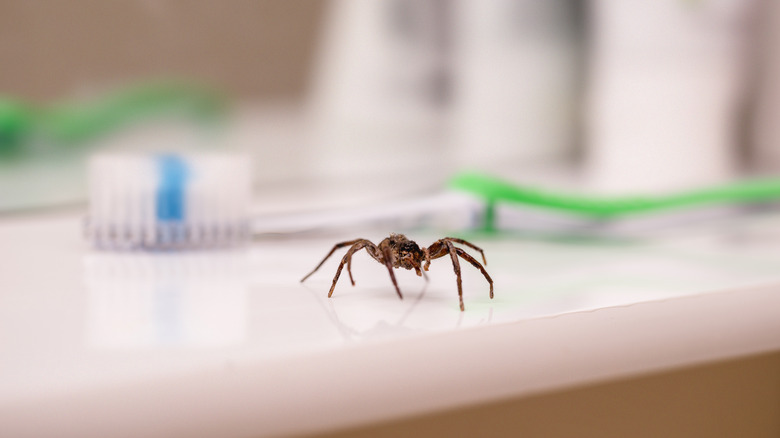Using Diatomaceous Earth For Spiders: Good Or Bad Idea?
Dealing with spiders in your home can be a challenging task. These pests, known for their distinct odor when disturbed, often seek shelter in homes, particularly during cooler months. They are more than a nuisance as they can also cause harm to your garden and indoor plants. If you're facing this issue, diatomaceous earth might be your go-to solution. This powdery substance is made from the fossilized remains of diatoms, a type of algae. While specific studies on diatomaceous earth's effectiveness against spiders are scarce, there's ample evidence to suggest its efficacy. In addition to killing spiders, the National Pesticide Information Center recognizes it for use against various other pests like cockroaches, bed bugs, and crickets. This endorsement lends credibility to its potential effectiveness against spiders. In terms of how it works, the main mechanism of action is physical. When insects come into contact with the powder, it absorbs the oils and fats from their cuticles, causing them to dehydrate and die.
To combat spiders effectively, understanding their habitat and behaviors is essential. Alongside its insecticidal properties, diatomaceous earth also offers other benefits. It's easy to apply and can be used in various settings from gardens to indoor spaces. However, when using diatomaceous earth, it's crucial to choose the food-grade variety. This type is refined and purified to ensure it's safe for household use.
Understanding spiders to eradicate them
Spiders normally find their way in through tiny gaps around windows, doors, or even cracks in walls. They're not just seeking a new home. They're after food and water. You'll often encounter cellar spiders, wolf spiders, and various types of common house spiders. These guys like their privacy and usually set up shop in quiet spots like the corners of your room, under furniture, in closets, or down in the basement. When it comes to breeding, spiders have some unique habits. They lay eggs in silk sacs, often hidden away. Each sac can be a nursery for hundreds of little spiders. The rate at which they multiply depends on the species and your home's environment.
To keep these eight-legged visitors at bay, focus on applying diatomaceous earth in areas where you've noticed spider activity. Just dust it lightly in these areas. Key places include corners, window sills, baseboards, and known entry points. A thin layer does the trick. It's also beneficial to treat outdoor areas where they are commonly found like garden perimeters or near the base of your home. If you're keen on monitoring the situation, sticky traps can be pretty handy. Just remember, patience is a virtue here. It may take a few days to start seeing results.
Additional strategies for managing spider infestations
Diatomaceous earth is a great start but it's not the only step you should take when managing spiders. Try to combine various methods. As mentioned earlier, spiders enter through small cracks and gaps, so inspect your house thoroughly and look for openings around windows, doors, utility pipes, and siding. Seal these gaps using caulk or weatherstripping. Next, consider your outdoor lighting. This attracts insects, which arachnids like spiders feed on. If outdoor lighting is necessary, opt for yellow bulbs or sodium vapor lights, as they are less attractive to these pests. Regular cleaning is your next line of defense. It's not just about tidiness. It's about removing their hideouts and cutting off their food supply (other bugs). You'll also need to vacuum up any webs you find inside your home.
In your garden, focus on reducing habitats that spiders find appealing. Cluttered, undisturbed areas such as overgrown vegetation, piles of wood, and dense shrubbery are their favorites. To make your garden less appealing, keep it tidy. Trim vegetation away from your home's exterior to reduce easy access points. Clear away debris and manage compost piles effectively. Finally, if your spider problem becomes overwhelming, don't hesitate to seek professional help. Pest control experts can offer more powerful solutions and tailored strategies based on the severity of your infestation. They can also provide advice for long-term prevention.


